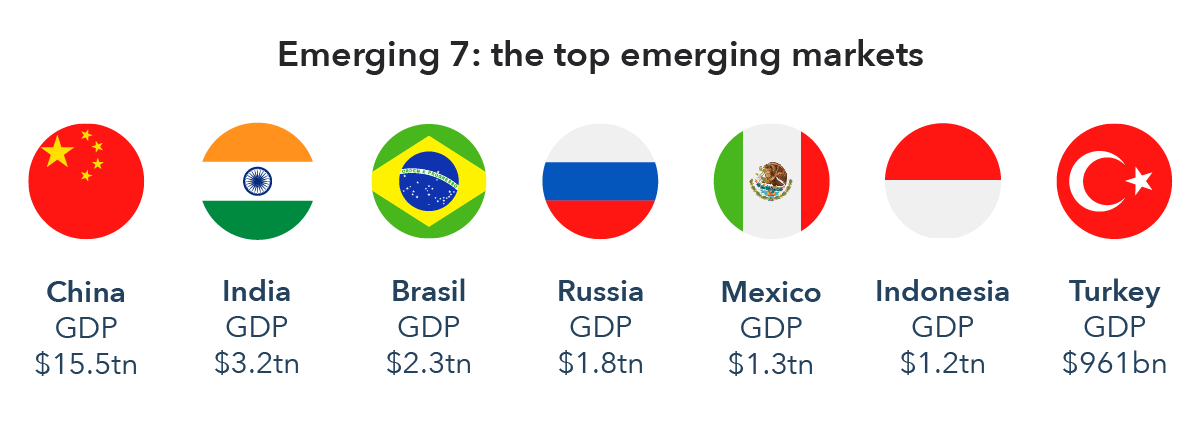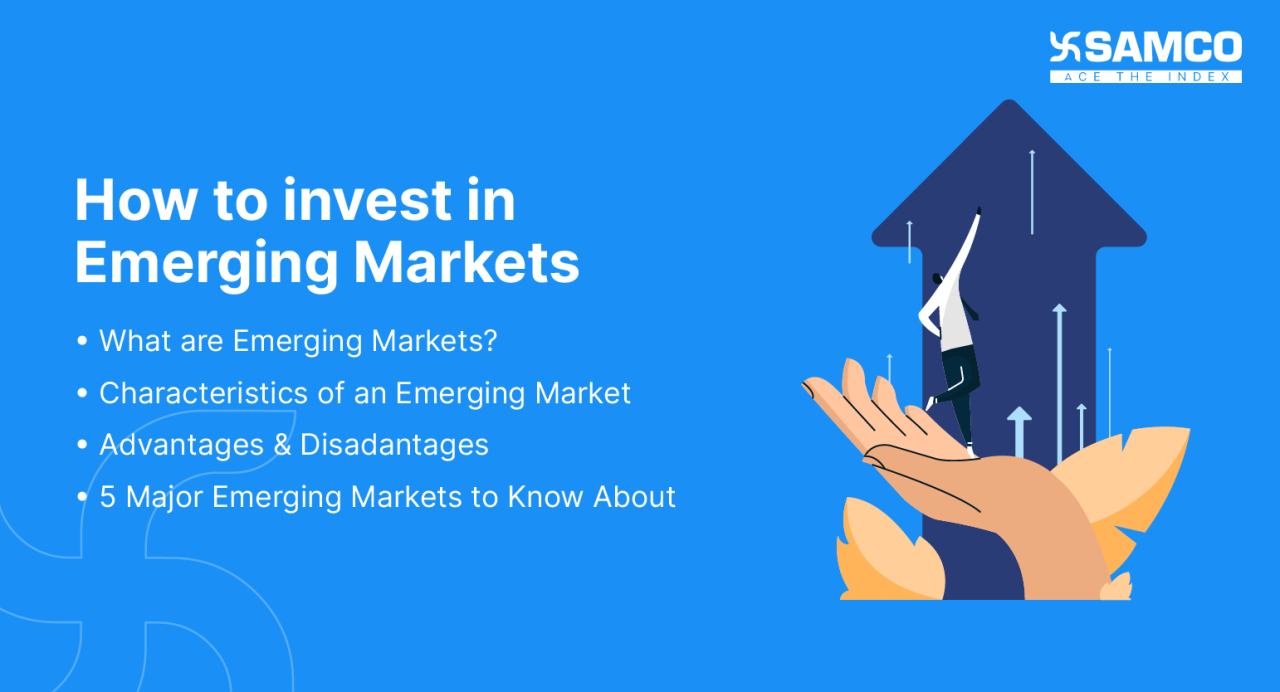Unlocking Opportunities: How to Invest in International Emerging Markets

How to invest in international emerging markets sets the stage for this enthralling narrative, offering readers a glimpse into a story that is rich in detail and brimming with originality. From defining international emerging markets to exploring investment strategies, this guide is your gateway to a world of financial possibilities.
As we delve deeper into the intricacies of international emerging markets, you'll uncover the key components that drive investment decisions and navigate the potential risks and rewards that come with venturing into these dynamic economies.
Understanding International Emerging Markets
Investing in international emerging markets involves putting money into countries that are experiencing rapid economic growth and industrialization. These markets are characterized by lower income levels, high growth potential, and increasing integration into the global economy.Potential Benefits of Investing in International Emerging Markets:
Diversification:
- Diversifying your investment portfolio by including international emerging markets can help reduce risk by spreading investments across different regions and industries.
- These markets may not always move in sync with developed markets, providing a hedge against volatility.
High Growth Potential:
- International emerging markets often offer higher returns compared to developed markets due to their rapid economic growth rates.
- These markets provide opportunities to capitalize on demographic trends, urbanization, and technological advancements.
Examples of Countries Considered as International Emerging Markets:
Brazil:
Brazil is one of the largest emerging markets, known for its natural resources, agriculture, and growing consumer market.
India:
India is a major player in the global economy, with a large and diverse market, a young population, and a thriving technology sector.
China:
China has experienced rapid industrialization and urbanization, becoming a global economic powerhouse with a growing middle class and increasing consumer spending.
Risks Associated with Investing in International Emerging Markets

Investing in international emerging markets can offer great potential for high returns, but it also comes with its own set of risks. These risks are important to consider before diving into these markets to ensure a well-informed investment decision.
Differences in Financial Regulations
In international emerging markets, financial regulations may not be as stringent or enforced compared to developed markets. This lack of regulatory oversight can lead to higher instances of fraud, insider trading, and market manipulation, increasing the risk for investors.
Political Instability
Political instability is another significant risk when investing in international emerging markets. Changes in government policies, civil unrest, or geopolitical tensions can have a direct impact on the economy and financial markets, leading to sudden and drastic fluctuations in investment values.
Currency Exchange Rate Fluctuations
Currency exchange rate fluctuations can also pose a risk for investors in international emerging markets. The value of foreign currencies can be volatile, and changes in exchange rates can impact the overall return on investment, especially when repatriating funds back to the investor's home currency.
Less Liquidity and Market Depth
International emerging markets may have less liquidity and market depth compared to developed markets. This can make it challenging to buy or sell investments quickly without significantly impacting market prices, potentially resulting in higher transaction costs and lower returns for investors.
Correlation with Global Economic Conditions
International emerging markets are often closely tied to global economic conditions. Any downturn in the global economy can have a ripple effect on these markets, leading to a correlated decline in investment values. This interconnectedness can increase the overall risk exposure for investors.
Strategies to Mitigate Risks
To mitigate the risks associated with investing in international emerging markets, investors can consider diversifying their portfolio across different regions and asset classes. Conducting thorough research, staying informed about local economic and political developments, and working with experienced financial advisors can also help navigate the unique challenges of these markets and reduce potential risks.
Ways to Invest in International Emerging Markets

Investing in international emerging markets can offer great opportunities for growth and diversification. There are several different investment options available for those looking to tap into these markets.
The Importance of Diversification
Diversification is crucial when investing in international emerging markets to spread risk across different asset classes and regions. By diversifying your investments, you can reduce the impact of any potential downturn in a single market or sector.
Exchange-Traded Funds (ETFs)
Exchange-Traded Funds (ETFs) are a popular way to gain exposure to international emerging markets. These funds are traded on stock exchanges and typically track a specific index of stocks, bonds, or commodities in a particular market or region.
Factors to Consider Before Investing in International Emerging Markets
When considering investing in international emerging markets, it is crucial to take into account various factors that can impact your investment decisions. Political and economic stability, currency fluctuations, and the importance of thorough research all play a significant role in determining the success of your investments.
Political and Economic Factors Impacting Investments
Political stability in a country can greatly affect investments, as political unrest or changes in government can lead to uncertainty and potential risks for investors. Similarly, economic factors such as inflation rates, interest rates, and GDP growth can also impact the performance of investments in emerging markets.
Currency Fluctuations and Investment Risks
Currency fluctuations can have a significant impact on investments in international emerging markets. Changes in exchange rates can either increase or decrease the value of your investments, making it essential to consider the currency risk when investing. Hedging strategies can help mitigate these risks.
Importance of Thorough Research
Before investing in international emerging markets, conducting thorough research is crucial. This includes analyzing market trends, understanding the regulatory environment, and assessing the potential risks and rewards of investing in a particular market. By being well-informed, you can make more educated investment decisions and reduce the likelihood of unexpected surprises.
Summary

In conclusion, investing in international emerging markets opens up a realm of diverse opportunities for growth and expansion. By understanding the intricacies of these markets and implementing strategic investment approaches, you can position yourself for success in a global landscape that is ripe with potential.
FAQ Guide
What are some potential benefits of investing in international emerging markets?
Investing in international emerging markets can provide higher growth potential compared to developed markets, diversification opportunities, and exposure to dynamic economies.
How can currency fluctuations impact investments in international emerging markets?
Currency fluctuations can affect the returns on investments in international emerging markets, either positively or negatively, depending on the direction of the exchange rate movements.
Why is diversification important when investing in international emerging markets?
Diversification helps reduce risk by spreading investments across different assets and markets, minimizing the impact of any single market downturn on the overall portfolio.

